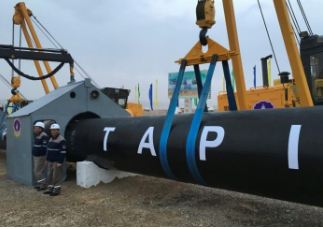The Turkmenistan-Afghanistan-Pakistan-India (TAPI) gas pipeline project was once hailed as a game-changer for regional energy cooperation and economic integration. Designed to transport natural gas from Turkmenistan’s massive Galkynysh field to energy-hungry markets in South Asia, TAPI promised to reduce regional energy deficits and promote cross-border collaboration. But over a decade later, TAPI remains a vision on paper—mired in delay, dysfunction, and deepening distrust.
At the heart of the project’s stagnation lies a fatal flaw: widespread corruption in Turkmenistan. The opaque governance structure and lack of transparency in Turkmenistan’s energy sector have made international stakeholders uneasy. Key decisions are often made behind closed doors, without third-party scrutiny or accountability. Western investors and financial institutions have steered clear of Turkmenistan due to governance concerns, further stalling project financing. With no real reform or will to combat corruption, Turkmenistan has failed to build trust with its partners.
Pakistan, once a strong supporter of TAPI, is increasingly disillusioned—not just due to Turkmenistan’s internal dysfunction, but also because of its insistence on keeping India in the project. While the idea of regional connectivity sounds appealing on paper, the current geopolitical climate renders cooperation with India extremely difficult. Tensions between Islamabad and New Delhi have escalated in recent years, and strategic mistrust runs deep. Pakistan views Turkmenistan’s unwillingness to reconfigure the pipeline’s framework—either by excluding India or pursuing bilateral alternatives—as a lack of understanding of regional sensitivities.
From Pakistan’s perspective, any economic or energy collaboration that includes India without addressing core bilateral disputes, particularly Kashmir, is unacceptable. On the other hand, Turkmenistan, desperate for a reliable and economically lucrative export destination, sees India as a vital end-market for its gas. This divergence in strategic priorities is a major obstacle, and neither side appears willing to compromise.
Afghanistan, meanwhile, remains the weakest link. With security and political stability still fragile despite changing regimes, building and maintaining a critical piece of energy infrastructure across Afghan territory is a monumental risk. Investors are wary, insurance is nearly impossible, and logistical hurdles abound.
In reality, the TAPI project is a victim of overambition, poor planning, and political contradictions. A multibillion-dollar pipeline cannot be built on hopes alone—it needs a foundation of mutual trust, robust governance, and geopolitical alignment. As long as Turkmenistan refuses to clean up its energy sector and accommodate regional concerns, particularly Pakistan’s, the project is unlikely to move beyond paper.
Instead of clinging to a failing four-party framework, perhaps it is time for Pakistan to explore alternative energy partnerships. Bilateral gas pipelines, LNG imports, and domestic renewable investments might prove more feasible and politically sustainable.
TAPI was a bold dream. But without reform in Ashgabat and a serious reevaluation of strategic alignments, it is a dream that may never materialize. Regional energy cooperation is vital—but it must be rooted in realism, not rhetoric.

















